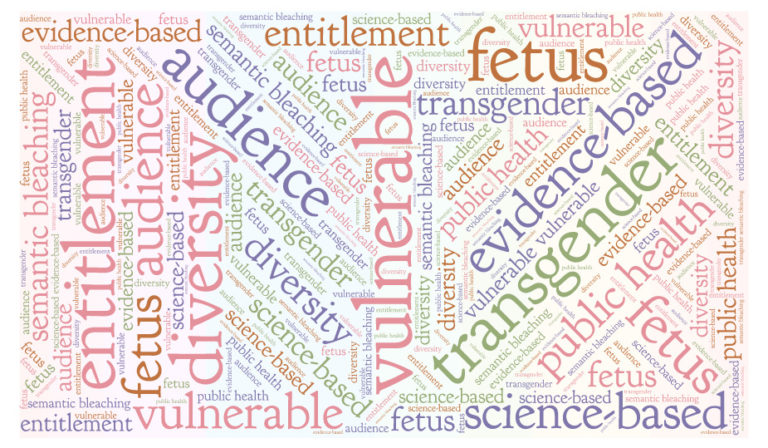A Writing Teacher’s Take on the Seven Words Controversy
Public health, scientific, and academic writing are plagued by jargon and words that are so overused they become meaningless. PHP’s Associate Editor, Jennifer Beard offers a new spin on the recent “seven words” controversy.

Read Time: 4 minutes
Published:
The public health community was catapulted into a state of righteous indignation last December after the Washington Post reported that seven words (diversity, entitlement, evidence-based, fetus, science-based, transgender, and vulnerable) had been prohibited by the U.S. Department of Health and Human Services from appearing in budgets submitted by the Centers for Disease Control. The reporters used the words prohibit, forbidden, and banned frequently (12 times in all) and interchangeably throughout the story.
The next day, a New York Times article reported that no words had been banned, but some style guidelines had been given to improve clarity and reduce the potential for negative reactions on the part of some Republicans. Policy analyst, Yuval Levin, parsed the likely intentions behind the unpopular words. Diversity, entitlement, evidence-based, science-based, and vulnerable are over-used and sometimes inappropriately used. They are vague buzz words easily replaced to improve clarity. Fetus and transgender, Levin argued, have a high likelihood of triggering “retrograde Republicans” into cutting budgets for projects associated with reproductive and transgender health.
I warn students away from empty aspirational words like empowerment and impactful. I tell anyone who will listen that they should purge the noun issue whenever possible.
All of this got me thinking about the difference between choosing language strategically based on knowledge of your audience and self-censorship. As a writing teacher and editor, I understand the compulsion to give language guidelines. I spend an inordinate amount of time to trying to squeeze unnecessary and vague jargon out of other people’s writing. I try to do the same in my own writing. I warn students away from empty aspirational words like empowerment and impactful. I tell anyone who will listen that they should purge the noun issue whenever possible. I do this because it is overused to the point of being meaningless. Everything in public health is an issue. We have water issues, political issues, legal issues, structural issues, emotional issues, and we take issue with them all. This is known as semantic bleaching.
Consider this compact sentence rich in jargon but devoid of meaning:
Evidence-based and science-based entitlements can make people less vulnerable and improve diversity.
You may be wondering: What kind of evidence? Science conducted in what way? Which entitlements? What kind of vulnerability and diversity? Arguably, each of these words carries more symbolic than semantic value. I read sentences like this in journal articles, grant-proposals, and student papers every day. Sentences that read as if they come from a random jargon generator. Sometimes we need our jargon. Often we do not, but we still use it.
By contrast, transgender and fetus have clear definitions and expansive interpretations. Fetus is a standard clinical term associated with abortion debates and the in utero health risks posed by the Zika virus. Transgender is more than just an adjective embraced by individuals who live outside of binary gender roles. It is an identity. If I want a conservative congress to fund programs that promote reproductive or trans health, I may need to use alternative language to avoid tripping political alarms. This would entail self-censorship and a lot of soul-searching, but it may also be pragmatic and strategic.
Ultimately, a recommendation not to use the word transgender is very different from being told to avoid a buzz word like vulnerable. This is a key reason that the HHS budget guidelines were so confusing. Describing exactly what it means to be vulnerable in a specific context is the opposite of self-censorship. It’s an invitation to say what we mean. “Words matter” has been a common refrain in the passionate responses to the seven words controversy. They do, but some matter more than others.
PHP wants to hear your thoughts about public health language, jargon, and the difference between knowing your audience and self-censorship. Write to us at phpost [at] bu.edu.
Word Cloud Made Using: https://wordart.com/create



